Cabaret (1972)
“That’s me, darling: unusual places, unusual love affairs. I am a most strange and extraordinary person.”
|
Synopsis: |
|
Genres, Themes, Actors, and Directors:
Response to Peary’s Review: … “has a seductive power, that violence is a natural [?] outgrowth of perversion:” [?!?!?!?!] … and “that Nazism was nurtured by moral decay.” (Perhaps so, given society’s broader reactionary response to it; but he neglects to add the important caveat that this supposed ‘moral decay’ — actually LGBTQ+ sex-positivity — was far from innately harmful.) He adds that the “film went back to old-style musicals in that all the songs (Fred Ebb and John Kander won an Oscar) are performed on the cabaret stage, except ‘Tomorrow Belongs to Me,’ which is eerily sung in an open-air cafe by young Nazis and exuberant Germans who join in.” Peary points out that the songs — including “Cabaret,” “Money,” and “Two Ladies” — are “unforgettably performed by Minnelli and cabaret emcee Joel Grey (who won a Best Supporting Actor Oscar) and a group of gyrating chorus girls,” with “these stunningly choreographed numbers… photographed (by Geoffrey Unsworth, who won an Oscar) in a stylized manner that emphasizes the performers’ sexuality and lewdness.” In Alternate Oscars, Peary agrees with the actual Academy in awarding Minnelli the Best Actress of the Year award, noting that while “it’s possible she would have won with just a mediocre performance because the Academy wanted to make up for its slight of her mother [Judy Garland],” “Minnelli gave such a dynamic performance that no one questioned her victory over a weak field of nominees.” He writes that “with those big, soulful eyes that flood her face with tears without need of a cue, a stunned, open-mouthed, little-girl pout, and a tries-too-hard-and-makes-a-fool-of-herself manner, Liza Minnelli was peerless at seducing audience pity for her characters,” as she had in The Sterile Cuckoo and would again in New York, New York. He adds that “it is during Fosse’s stylized musical numbers that Minnelli completely amazes us, whether singing marvelous solos, or duets with Joel Grey… We are jolted by these performances, suddenly remembering that her acting, as fine as it is, is only her second-best talent.” While I’m not particularly enamored by the sub-plots involving more peripheral players (i.e., Berenson and Wepper’s romance): … the songs and visuals keep one consistently engaged, and better able to stomach the film’s sobering historical context. Notable Performances, Qualities, and Moments:
Must See? Categories
(Listed in 1001 Movies You Must See Before You Die) Links: |
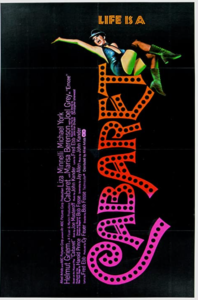
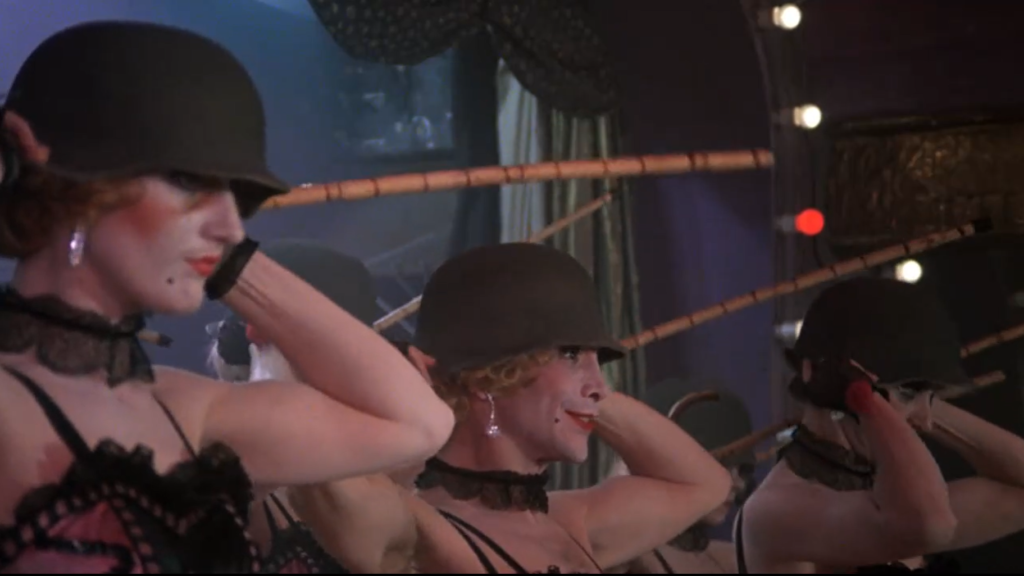
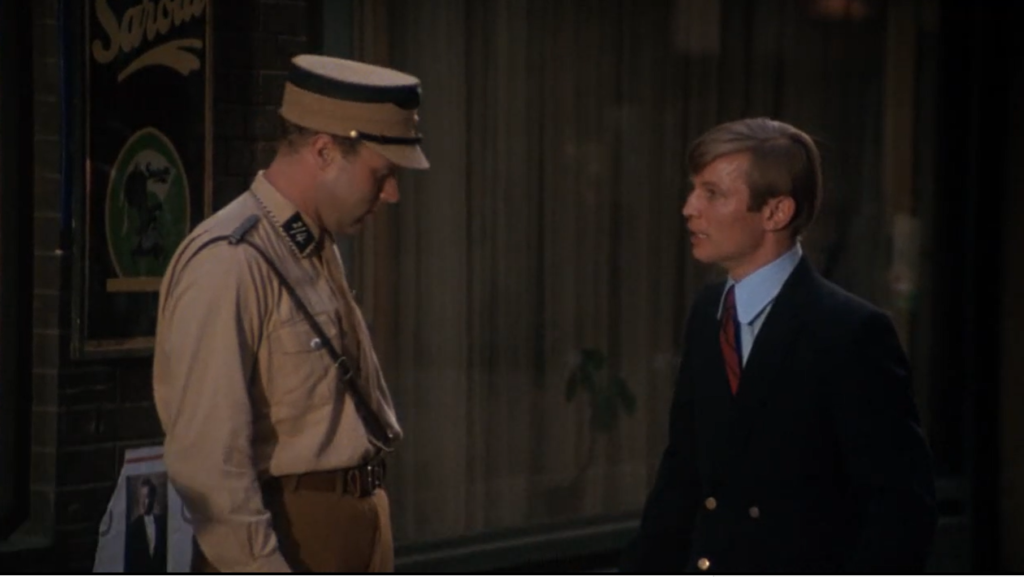
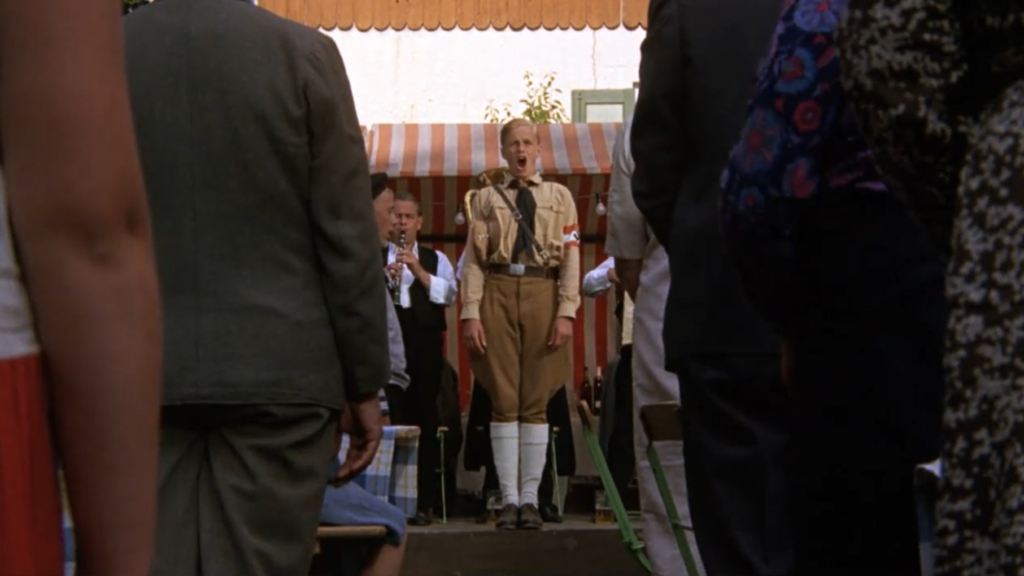
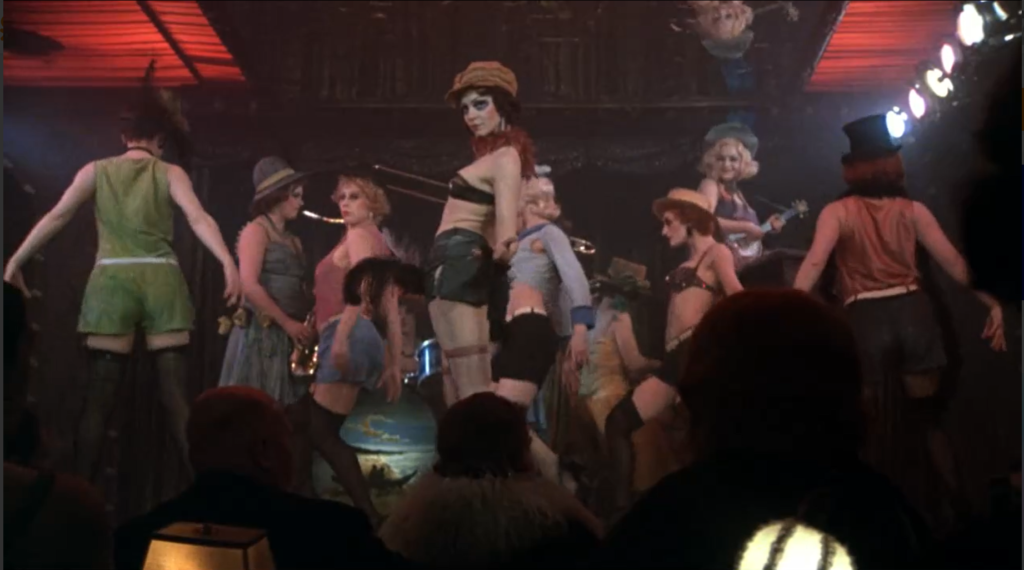
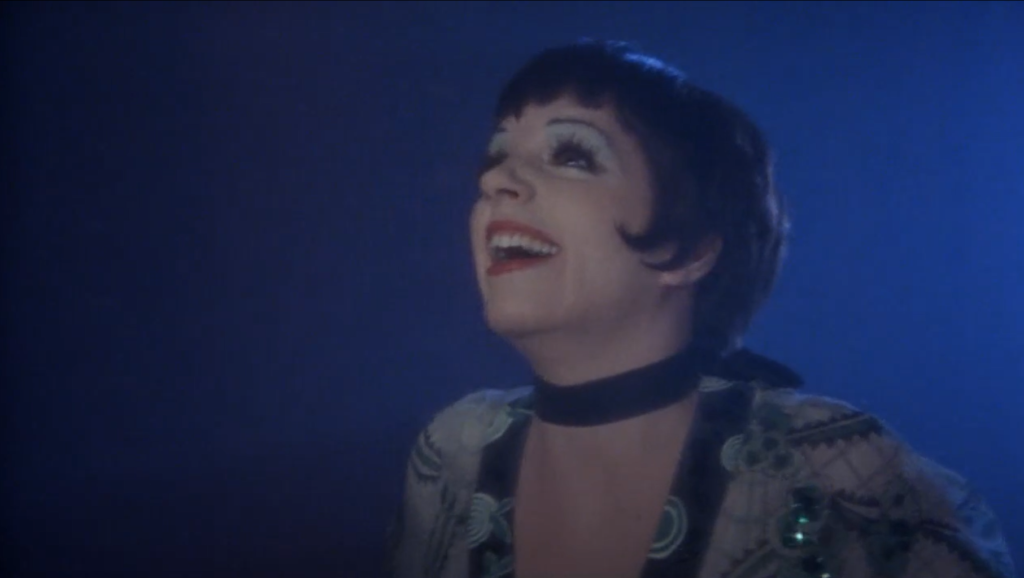
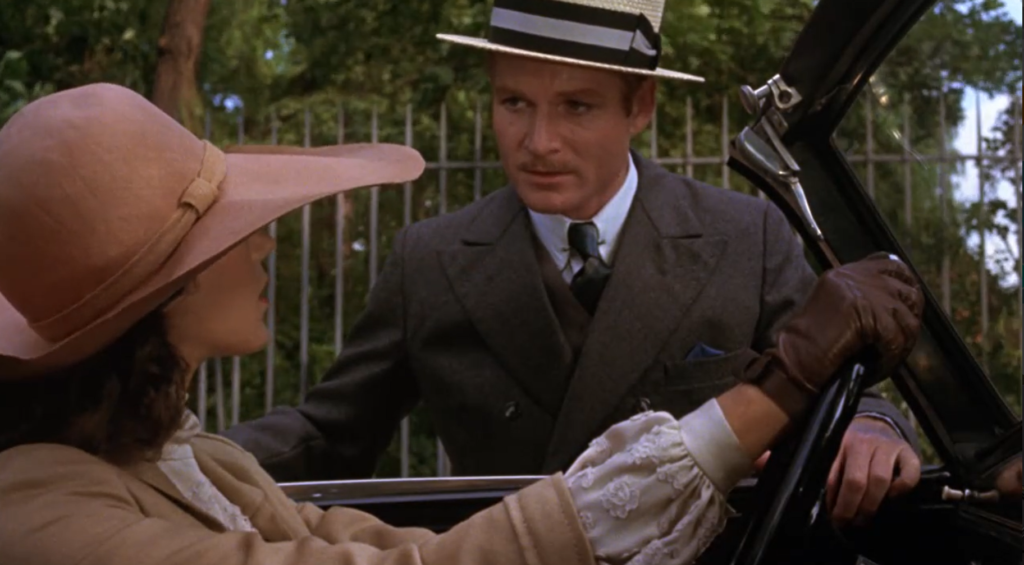
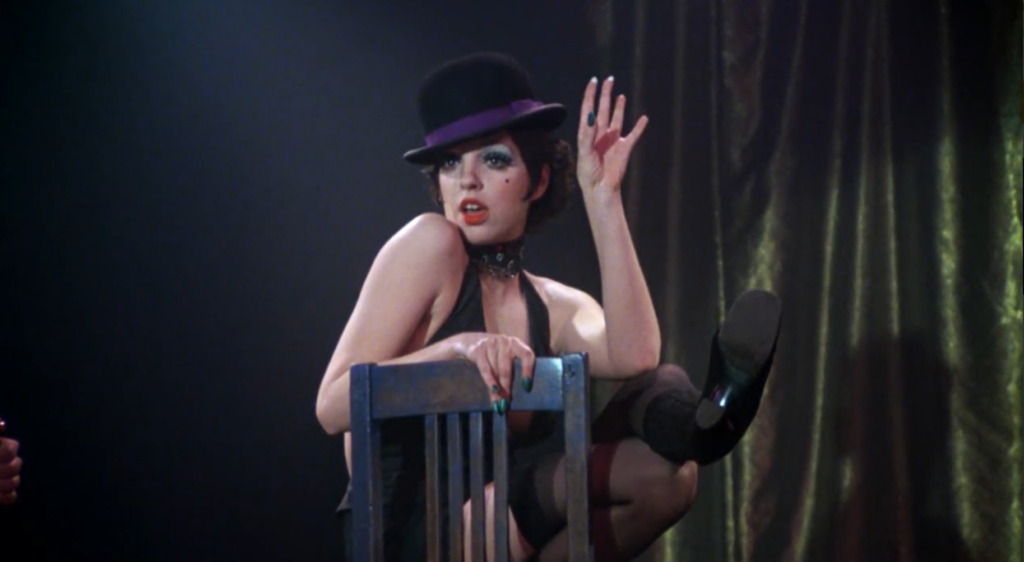
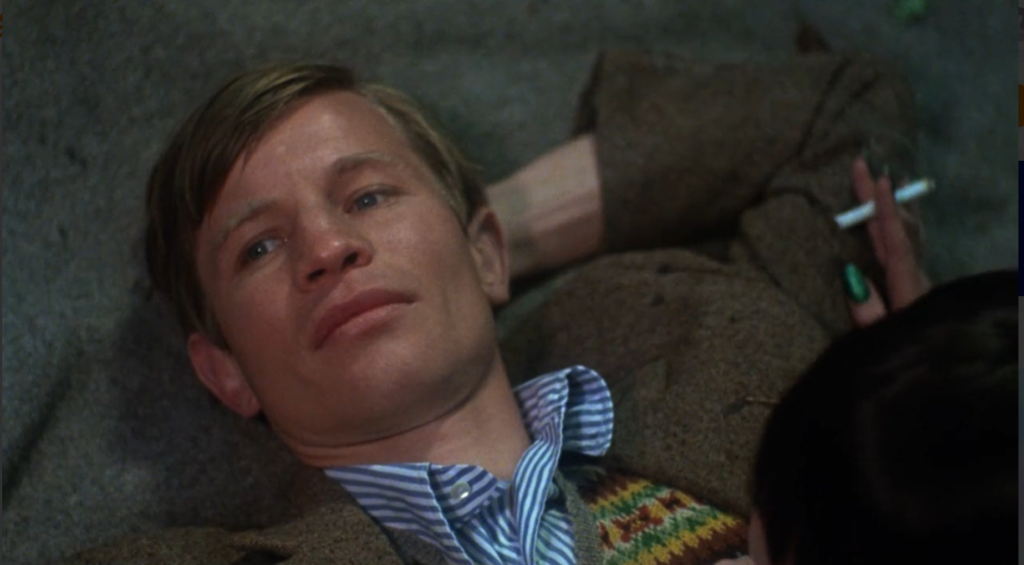
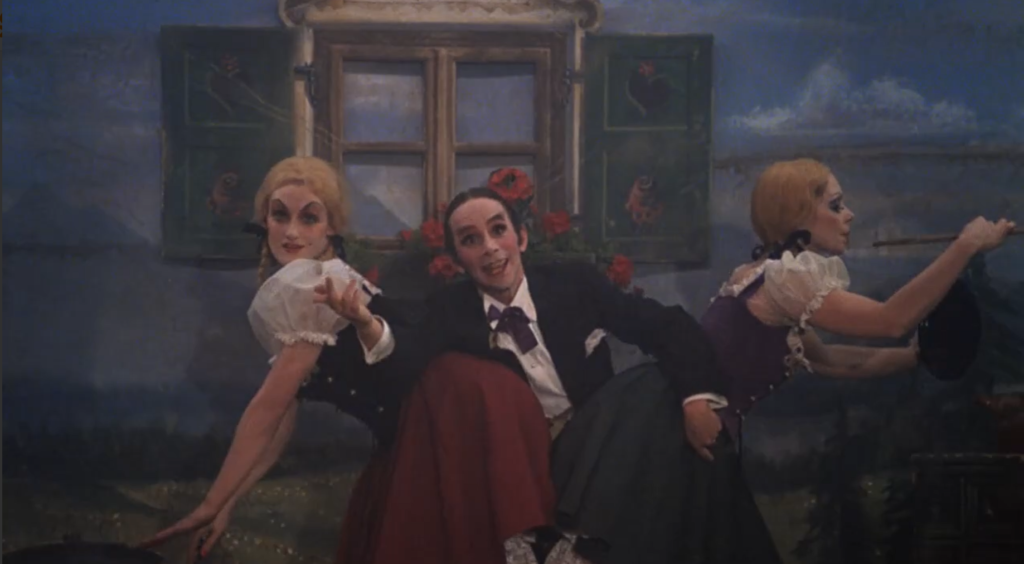
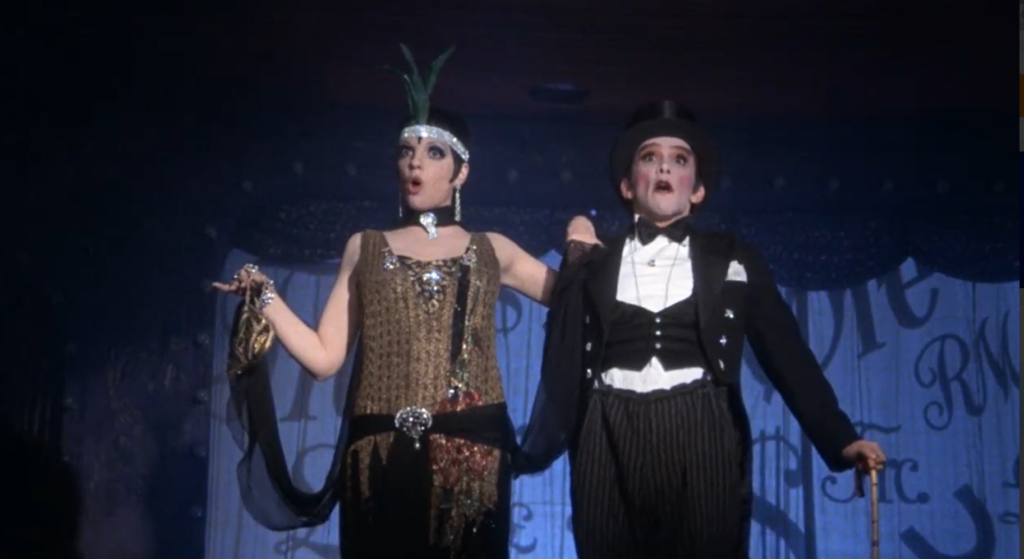
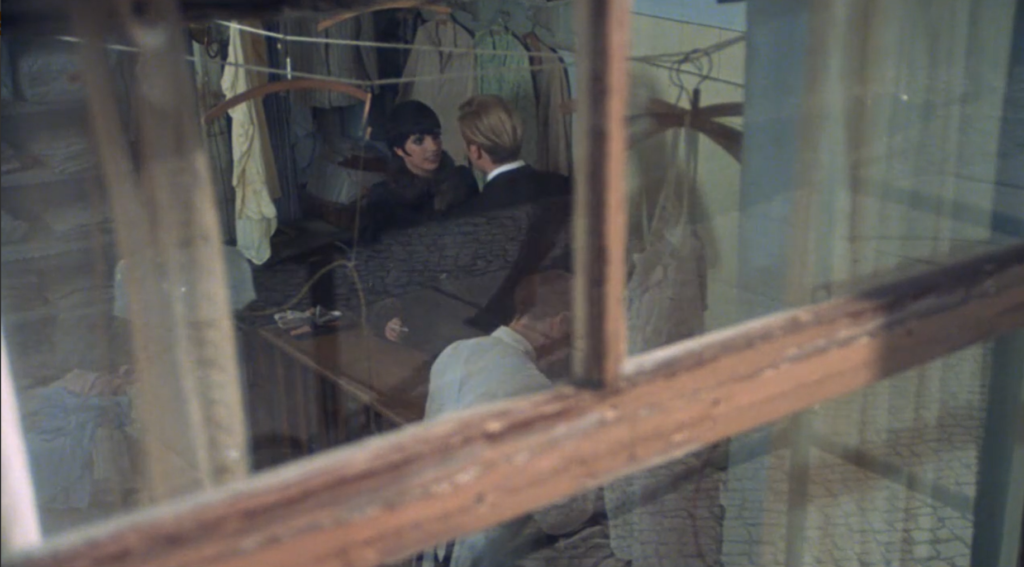
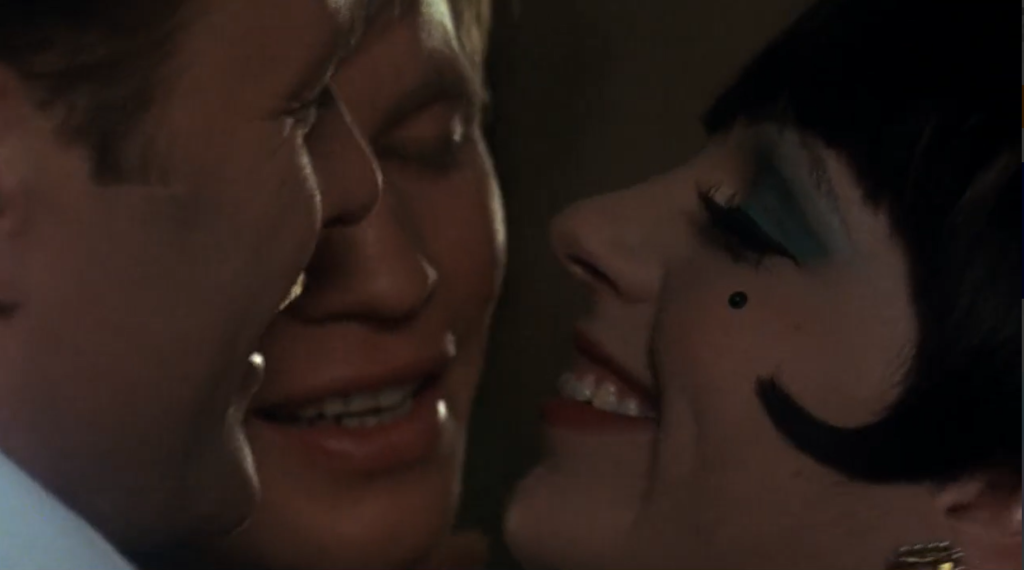
One thought on “Cabaret (1972)”
A no-brainer must-see & a film that stands up well to repeat viewings.
It’s not even so much that I’m an overwhelming Minnelli fan; it’s just a hell of a good movie. After making ‘Sweet Charity’ (which under-performed at the box office), Fosse seemed to think that ‘Cabaret’ would be his chance to ‘make good’. From what I’ve read about the film’s production, Fosse had to make do with a less-than-ideal budget and any number of constraints, making it that much more necessary to work that much harder (and even harder than ‘harder’).
In some ways, the film feels like the work of a man obsessed but still somehow level-headed and singularly focused.
I’d say it’s Fosse’s masterpiece.
Personally, to me it was sort of like ‘Rocky Horror Picture Show’ pre-‘Rocky Horror’, mainly due to its openness about sexuality and self-acceptance. (In that context, York can be seen as Brad; Grey can be seen as a sort of Frank N. Furter; Minnelli can be viewed as a mix of Magenta and Columbia but also partially as a liberated Janet. It wouldn’t be a stretch to view the ‘ideal’ Griem as Rocky. 😉 )
The film – which embraces queer behavior in a way that the original Broadway version very much did *not* – helped immensely in ushering in a post-‘Boys in the Band’ aversion to guilt. And York’s character serves as a sort of moral conscience, feeling as he does that it’s all well and good to be sexually liberated but one doesn’t necessarily have to be a complete libertine in order to find fulfillment.
‘Cabaret’ contains rather strong performances across-the-board. And then, of course, there is the film score – which, to me, doesn’t hit a single wrong note (as it were).
DP Unsworth’s contribution is stunning and Fosse’s double-duty as director and choreographer is simply flawless – to say the very least.
(Re: the script, my understanding is that it is largely the work of Wheeler. It seems that Fosse didn’t like Allen’s work at all but the contractual obligation kept her credit intact and Wheeler – quite a good writer – winning the Tony for the books for both ‘A Little Night Music’ and ‘Sweeney Todd’ – could only, sadly, be listed as ‘research consultant’.)